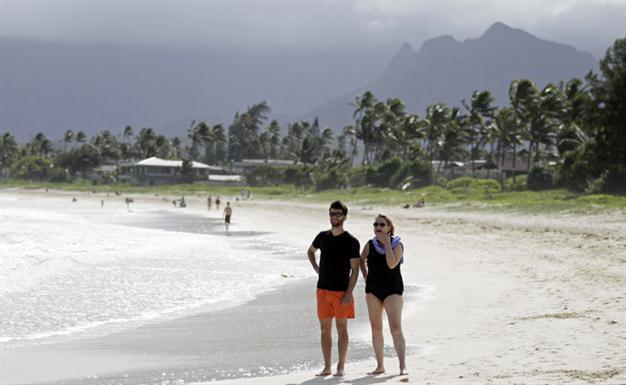Internet scams trick vacationers with fake rentals
FORT LAUDERDALE - The Associated Press

AP photo
A family from Suriname was the first of a string of guests to arrive at Steve Chase's million-dollar South Florida home expecting a vacation, only, Chase didn't invite any of them.All had paid thousands of dollars and had rental contracts for the Fort Lauderdale house. They were the victims of a growing number of scams that post occupied homes as available on vacation rental websites.
"I said, 'I hate to say it to you, but this house is not for rent. You've been scammed,'" Chase recalled telling the family.
"It's so sad," Chase told the South Florida Sun Sentinel newspaper. "These were good people that had good intentions, and they were just shocked." Experts say Chase's would-be houseguests probably never get their money back or see the scam artists punished because the fraud crosses international borders, making investigation and prosecution difficult.
Websites offering vacation home rentals act as clearinghouses where homeowners can list their properties. Prospective renters then connect with the owners independently of the websites.
Scam artists are increasingly taking advantage of that arrangement, falsely listing properties and requiring unsuspecting renters to pay upfront by wiring the money or sending a check to a post office box, experts say.
Chase's neighbor, 85-year-old June Beard, also has received multiple visits from people who believed they had rented her beachfront home. Beard neither listed the property nor collected the rent.
"The poor people who have come and expect to rent our houses, it's a shame," she said.
Fort Lauderdale police say they have been stymied in efforts to locate, arrest and prosecute the culprits.
"Our problem is that the victims are from Canada and other countries," said Sgt. Steve Scelfo, head of the Fort Lauderdale police's Economic Crimes Unit. "The money's not actually coming through Fort Lauderdale. We don't have standing jurisdictionally to investigate it." Further complicating the cases is the fact that the homeowners such as Chase are not being victimized.
"He's not out financially or really the victim of the crime," Scelfo said.
Such cases are the province of the Internet Crime Complaint Center, a federal Department of Justice clearinghouse that analyzes online fraud, he said. Few of these cases, though, see prosecution.
In addition to the family from Suriname, Chase has had to turn away a couple from Quebec and a local man who wanted to inspect the property on behalf of a New Jersey banker interested in renting the home for six adults, four children and two dogs.
The banker, Michael McKenna of Pine Beach, New Jersey, withdrew his offer and now says he only works with real estate agents on vacation rentals. "They're definitely more trustworthy than going off those Internet sites," he said.
Chase has had two fake listings in his beachfront neighborhood pulled from four websites, and he's fighting for more accountability for vacation rentals.
"I'm trying to push for some legislation to hold these websites accountable for the information they post," he said. "I'm making a lot of noise."
















